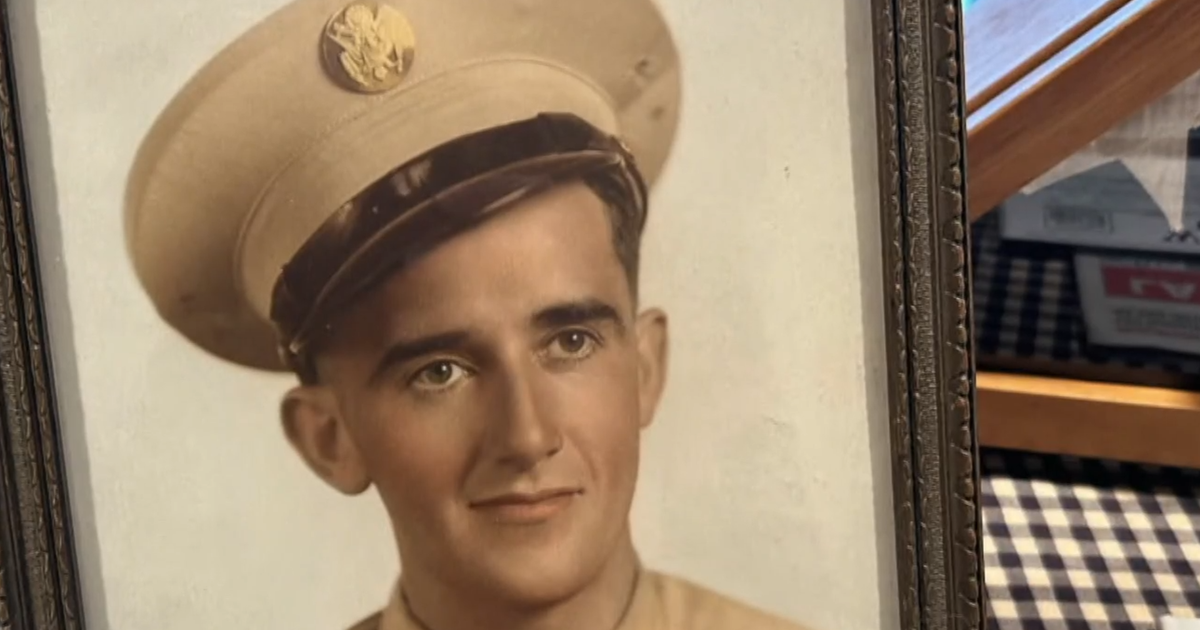CBS News
3 big credit card debt mistakes to avoid this October

Getty Images
Although the Federal Reserve’s interest rate cut earlier in September was a positive development for borrowers, it’s unlikely to offer much immediate relief for credit card users.
The average American has around $8,000 in credit card debt right now, and the average credit card interest rate is quickly approaching a staggering 23% at the same time. Combined, this makes for a potent combination of high-interest debt that will be difficult to pay off in a timely fashion.
Fortunately, multiple debt relief companies can help borrowers. They can do so with debt consolidation loans, debt management programs and even credit card debt forgiveness for those who may be eligible. To help make these options more effective, however, credit card users will need to take some steps to alleviate their existing debt. And that extends to knowing which credit card debt mistakes to avoid heading into the new month. Below, we’ll break down three of them.
Learn how the right debt relief program can help with your credit card debt here.
3 big credit card debt mistakes to avoid this October
Don’t let your existing credit card debt grow much further. Instead, avoid making these simple but easy-to-make mistakes this October:
Waiting for interest rates to fall further
There’s no telling when interest rates will fall, exactly. But even if you could determine it with exact precision, it doesn’t mean that those adjustments will make a material difference in what you owe on your credit cards. With a credit card interest rate of 23%, for example, a half of a percentage point reduction isn’t likely to do much (and that’s assuming that credit card rates fall directly in tandem with Fed actions, which they don’t).
Instead, rate reductions will come at a measured, gradual pace, which won’t offer the immediate relief those drowning in credit card debt need most right now. So be proactive and don’t wait for rates to decline further.
Get started with a top debt relief company online today.
Making minimum payments only
Minimum monthly credit card payments will provide (barely) minimum relief. For example, if you have $8,000 in credit card debt with that average 23% rate it will take you 27 years and nearly $15,000 in interest to pay down your debt if you make just the minimum $233.33 payment every four weeks. So stop making them and aim to make a more substantive payment each month, instead.
This is easier said than done. But if you made a payment of $466 instead – doubling your minimum – you’d pay off your debt in just 20 months and only pay $1,794.84 in interest. That’s approximately 25 years back to you and over $13,000 in saved interest costs. So it could be worth the financial sacrifice if you can find a way to do so.
Thinking you can do it on your own
As the above figures demonstrate, you may simply already be in too much debt to take a DIY approach. So don’t force it. Take a realistic look at what you owe and what you can realistically afford to pay. If you can only make those minimum payments, then, it may be time to bring in an experienced debt relief servicer who can help.
With options ranging from debt management to bankruptcy for more severe cases, there’s likely an effective recourse for your financial situation. Thinking you can do it all on your own, however, could be a costly (and time consuming) mistake.
The bottom line
Credit card debt can be debilitating for both your financial and mental health. And it can be compounded by making mistakes like waiting for interest rate reduction help, making minimum payments only and taking a personal approach to a problem that requires professional assistance. So don’t make these mistakes in October. Consult with a debt relief professional who can advise you on the best path to take in the new month and get working toward true relief from credit card debt now.
CBS News
Who are the contenders for Trump’s next administration?

Watch CBS News
Be the first to know
Get browser notifications for breaking news, live events, and exclusive reporting.
CBS News
80 years after her father’s death in WWII, she finally learned the where and how

Syracuse, Nebraska — Gerri Eisenhauer’s father, Army Pvt. William Walters, was shipped off to World War II before she was even born.
In 1944, her family got back his body and a U.S. government letter that only said he had died somewhere in France.
“I just always wondered, where he died, how he died, it was just a little part of a puzzle piece that was missing in my life,” Eisenhauer told CBS News.
For decades, the family was resigned to the fact that it would never know. That is, until a few months ago.
Eisenhauer was at her home in Syracuse, Nebraska, this past summer when she received a message from Christophe Ligere, a French historian, from the small village of Grez-sur-Loing, in central France. The message read, in part, “On the occasion of the 80th anniversary of the liberation of France, we pay tribute to Private William Walters.”
Ligere had found Walters’ name in the diary of an eyewitness to his death, and he immediately felt like he had to find Walters’ family. Ligere conducted some research and located the Walters’ family tree, and from there he found the online obituary of another relative of Eisenhauer, through which he left her that message.
“We were looking for our soldier,” Eisenhauer’s daughter, Jan Moore, told CBS News. “We did not know that he was their soldier, too.”
As Eisenhauer learned from Ligere, in August 1944, American troops began liberating the village of Grez-sur-Loing. It was a joyous day, but there was one casualty: while crossing the Loing River into town, Walters’ boat capsized and he drowned at the age of 20.
After Ligere tracked down Walters’ family, he invited them to France to honor their shared hero and the sacrifice he made here. Eisenhauer and her daughter and son, Jan and Allen, made the trip in September.
Marc Perrot had witnessed Walters’ death at the age of 13.
“They went looking for him and found him,” Perrot explained in an interview with France Télévisions. “They did a lot of things to try to revive him, but it didn’t work.”
Perrot met Eisenhauer and showed her where they laid her father to rest prior to his body being returned to the U.S.
“They covered him with flowers,” Eisenhauer said of the French. “It’s just amazing, the care that they gave him.”
This week, Eisenhauer returned to her father’s grave in Cass County, Nebraska.
“First time I’ve been here and had the answers,” Eisenhauer said.
She says she now feels at peace, and it’s all thanks to the grateful people of France, who even 80 years on, still see the U.S. through the prism of our better angels.
“It’s very important because the…young people come from the US…to battle for democracy…in France,” Ligere told CBS News.
CBS News
11/8: CBS News Weekender – CBS News

Watch CBS News
Be the first to know
Get browser notifications for breaking news, live events, and exclusive reporting.



